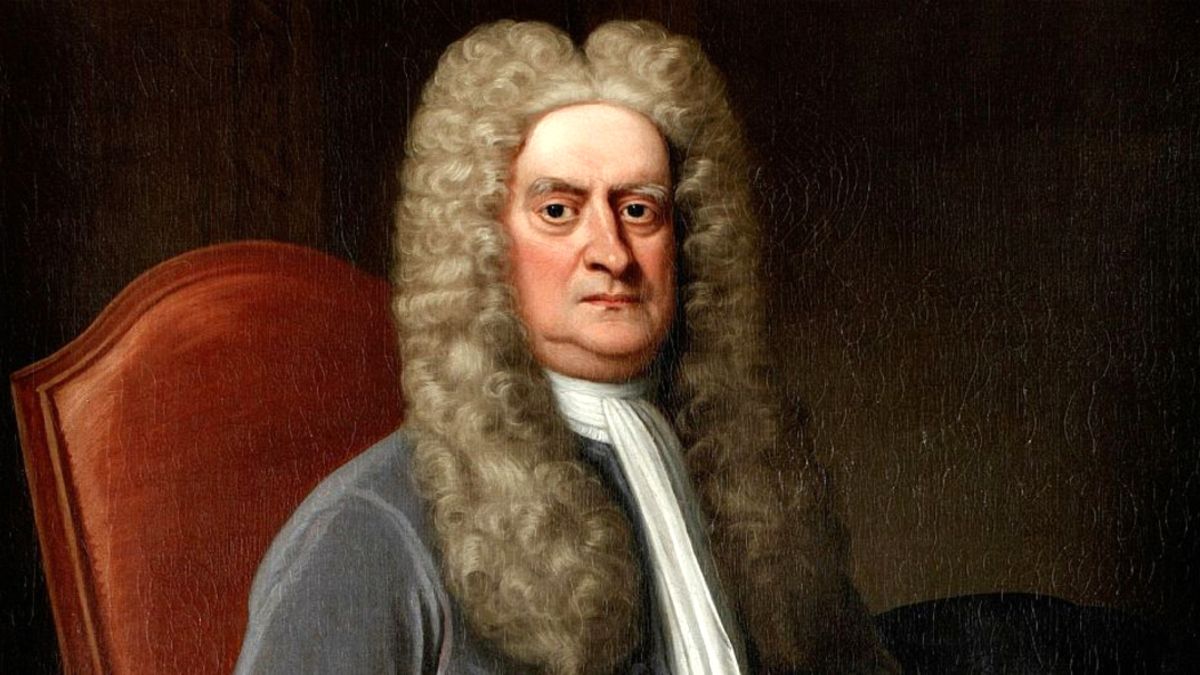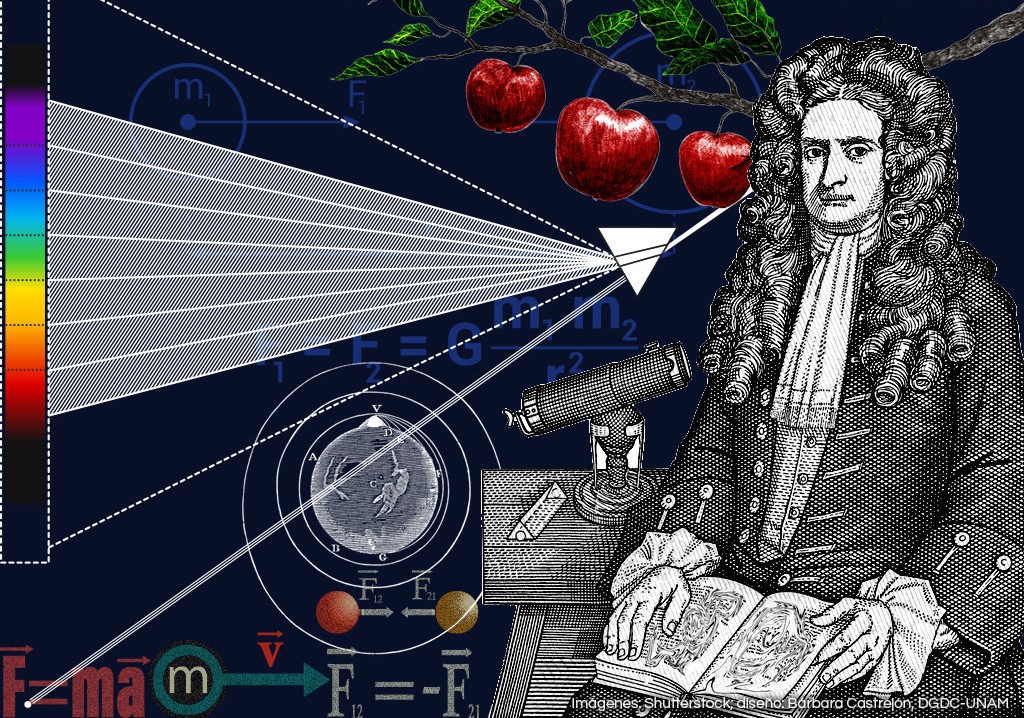Isaac Newton: A Revolutionary Genius
Isaac Newton stands as one of the most influential figures in the history of science. His groundbreaking work laid the foundation for modern physics and mathematics, revolutionizing our understanding of the natural world. Born on December 25, 1642, in Woolsthorpe, England, Newton's contributions to science spanned a wide range of disciplines, including optics, mechanics, and calculus. In this exploration, we delve into the life, achievements, and enduring legacy of this remarkable thinker.
Early Life and Education Newton was born prematurely, and his father died just months before his birth. Raised by his mother, he exhibited an early aptitude for learning and showed a keen interest in mathematics and science. After attending The King's School in Grantham, he enrolled at Trinity College, Cambridge, in 1661.
Newton was born prematurely, and his father died just months before his birth. Raised by his mother, he exhibited an early aptitude for learning and showed a keen interest in mathematics and science. After attending The King's School in Grantham, he enrolled at Trinity College, Cambridge, in 1661.
At Cambridge, Newton immersed himself in the study of mathematics and natural philosophy. His brilliance soon caught the attention of his professors, and he was appointed Lucasian Professor of Mathematics in 1669, a position he held for over three decades.
The Principia Mathematica
Newton's most famous work, "Philosophiæ Naturalis Principia Mathematica" ("Mathematical Principles of Natural Philosophy"), commonly known as the Principia, was published in 1687. In this monumental work, Newton laid out his three laws of motion, which form the foundation of classical mechanics. He also introduced the concept of universal gravitation, explaining how every object in the universe attracts every other object with a force proportional to their masses and inversely proportional to the square of the distance between them.
The Principia revolutionized our understanding of the universe, providing a mathematical framework for describing the motion of celestial bodies and predicting their behavior with unprecedented accuracy. Newton's laws of motion and universal gravitation not only explained phenomena observed on Earth but also laid the groundwork for the development of modern physics and the study of astronomy.
Optics and the Nature of Light In addition to his work in mechanics, Newton made significant contributions to the field of optics. In 1666, he conducted a series of experiments with prisms, demonstrating that white light is composed of a spectrum of colors. He also proposed the particle theory of light, suggesting that light consists of tiny particles, or corpuscles, which travel in straight lines and are responsible for the phenomena of reflection and refraction.
In addition to his work in mechanics, Newton made significant contributions to the field of optics. In 1666, he conducted a series of experiments with prisms, demonstrating that white light is composed of a spectrum of colors. He also proposed the particle theory of light, suggesting that light consists of tiny particles, or corpuscles, which travel in straight lines and are responsible for the phenomena of reflection and refraction.
Newton's groundbreaking work on optics laid the foundation for the modern understanding of light and vision. His discoveries paved the way for the development of technologies such as telescopes, microscopes, and lasers, and his corpuscular theory of light provided valuable insights into the nature of electromagnetic radiation.
Legacy and Impact
Newton's legacy extends far beyond his scientific achievements. His ideas transformed the way we perceive the universe and laid the groundwork for the scientific revolution of the 17th and 18th centuries. His Principia remains one of the most influential scientific works of all time, and his laws of motion and universal gravitation continue to form the basis of classical mechanics. Moreover, Newton's work in mathematics was equally groundbreaking. He developed the calculus independently of Gottfried Wilhelm Leibniz, laying the foundation for modern mathematics and its applications in physics, engineering, and countless other fields.
Moreover, Newton's work in mathematics was equally groundbreaking. He developed the calculus independently of Gottfried Wilhelm Leibniz, laying the foundation for modern mathematics and its applications in physics, engineering, and countless other fields.
Newton's influence can be seen in virtually every branch of science, from astronomy and physics to chemistry and biology. His emphasis on empirical observation, mathematical rigor, and logical reasoning set the standard for scientific inquiry and inspired generations of scientists to follow in his footsteps.
Personal Life and Character
Newton's complex personality and eccentricities have fascinated scholars for centuries, and his life continues to be the subject of intense scrutiny and speculation. Despite his brilliance, he was not immune to controversy and criticism, particularly in his later years when he became embroiled in disputes with rival scientists and mathematicians.
Conclusion
Beyond his scientific achievements, Newton's life and legacy serve as a testament to the power of human curiosity, intellect, and perseverance. His insatiable thirst for knowledge and relentless pursuit of truth exemplify the spirit of scientific inquiry and the quest for understanding that continues to drive progress and innovation to this day. Isaac Newton truly stands as a giant among scientists, a revolutionary genius whose influence extends far beyond the boundaries of his own time and place.





































